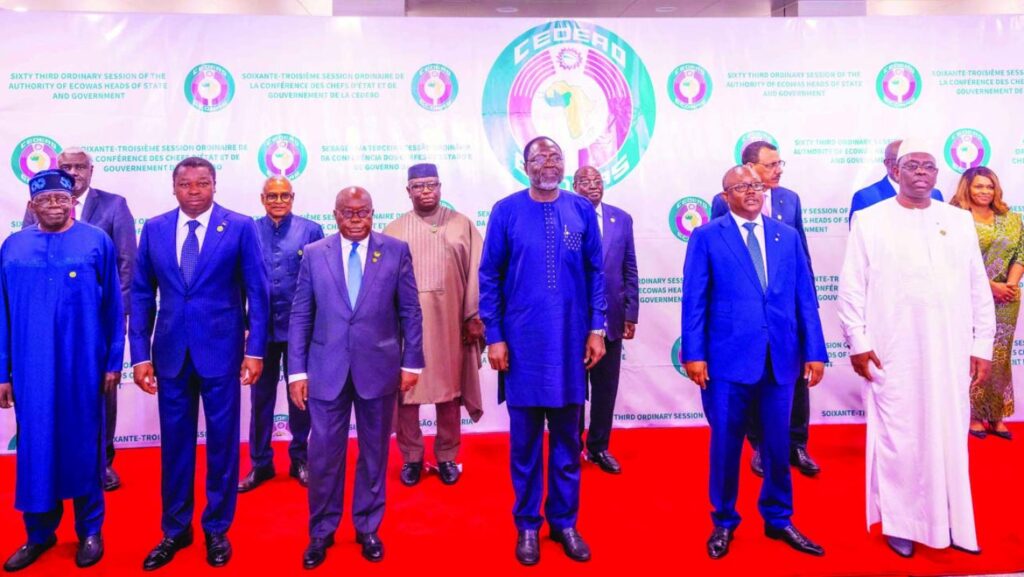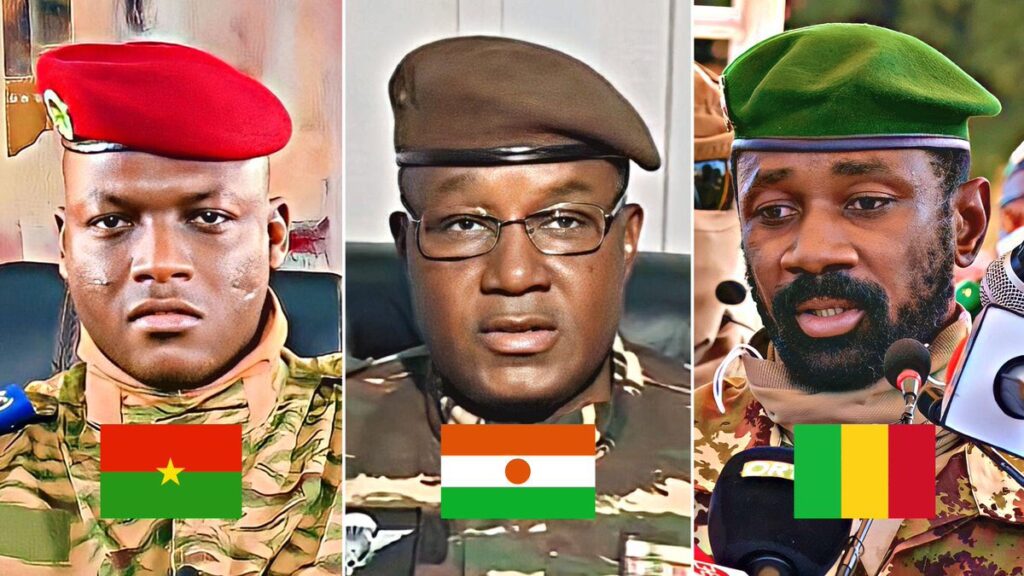Will ECOWAS Weather The ECOUT Storm?
April 26, 2024
By Prof Wafula Okumu*

Established in 1975 through the Treaty of Lagos as an instrument for promoting economic integration, ECOWAS has over the years morphed into a group dealing with peace and governance challenges. In July 1993, it amended its treaty to handle peace, security and stability issues, and, in December 2001, adopted a protocol to promote democracy and good governance in West Africa. This protocol requires ECOWAS states to demonstrate “zero tolerance for power obtained or maintained by unconstitutional means.”
But the spate of coups in the region has put ECOWAS under scrutiny, questioning its success in integrating and addressing human security challenges in the West African region. Will it withstand the formation of a new regional arrangement? Is the emergence of the new kid in the neighbourhood a wakeup call to revamp itself? It will be particularly interesting to watch if other African regional economic communities (RECs) are also paying attention to what is happening in West Africa and picking up signals to pull up their socks and reboot themselves to conform to the changed times. How will they face tribulations similar to ECOWAS’?
The decision to quit ECOWAS (or ECOUT) was prompted by the suspensions after the military ousted civilian presidents in violation of regional norms barring coup d’états. In a strongly worded statement, the trio protested the sanctions imposed on them as illegal, illegitimate and inhumane. They added that ECOWAS has fallen “under the influence of foreign powers,” moved away from the spirit of Pan-Africanism and the ideals on which it was founded, and “has become a threat to its member states and its populations whose happiness it is supposed to ensure.”
Despite successfully restoring civilian rule in Mali in April 2012 and Burkina Faso in September 2015 after military coups and facilitating a democratic transition in The Gambia in January 2017, ECOWAS has recently been unable to stem a rise of unconstitutional changes of government. The spate of coups in some parts of the continent is drawing attention to the run-of-the-mill implementation of regional and continental norms on constitutionalism and good governance.
Indeed, it is not only ECOWAS that seem to be standing on a shaky ground. In Eastern Africa, while Somalia has just joined the East African Community as its eighth member, the DRC is cold footed barely two years after joining the community. Notably, in December 2023, the DRC blocked the EAC from monitoring and observing its elections, while allowing Africa Union and Southern African Development Community observers to participate. Sudan has also signalled its intention to pull out of the Inter-governmental Authority on Development, further weakening its influence to address a myriad of human security threats in the volatile Horn of Africa region.
The widespread celebrations following ousters of “democratically elected” leaders has exposed RECs’ proclivity to coddle incumbents who manipulate electoral processes and tamper with constitutions to hang on to power. It is definitely an indictment on the status of ECOWAS as a promoter of democracy and good governance if its weaknesses are continually exploited by putschists. If these countries survive ECOWAS wrath and remain under military rule, then the prohibition of unconstitutional changes of government will be ineffectual.

It will also highlight the waning multilateralism in Africa. It does not matter who will blink first. West Africa and the continent in general are currently facing democratic haemorrhage due bad governance and bad leadership. Popularity of coups in Africa as an alternative to removing disliked regimes from power should put on notice RECs that invoke norms prohibiting removal of from power and shielding sit-tight presidents who rig elections and abuse constitutional orders.
ECOUT is complicating initiatives to address regionalised common threats such as those posed by Boko Haram and other al-Qa'eda-liked groups due to less sharing of intelligence information, disjointed operations, and weakened border governance as resources are deployed to secure the centres leaving borderlands exposed to criminal activities such as human and drug trafficking.
It is not only the roles of multilateral institutions to promote human security that are under microscopic watch in Africa. Multilateralism and Africa’s historic ties to the West are also imperilled. ECOWAS has exposed weakening multilateralism by stuttering, faltering and wavering as it tried in vain to apply sanctions to force the return of civilian rule. It image is dented by climbing down and lifting all sanctions it had imposed on Niger despite its previous belligerent posture.
The threats to use force that accelerated the formation AES were not endorsed by the UN Security Council and the AU Peace and Security Council which have responsibilities for authorising such measures. However, such authorisation was unlikely to be given by the AU whose responsibility to protect clause, enshrined in Articles 4(h) and 4(j) of its Constitutive Act, is essentially moribund. It appears the current threats to human security in West Africa are unlikely to trigger efforts to review the AU “intervention” clause and to explicitly revise the norm banning unconstitutional changes of government.
The international community, particularly western countries and the UN, should also draw lessons from the way France has faced the wrath of civilian populations for instrumentalising ECOWAS to maintain its neo-imperial presence in the region. Coincidentally, while kicking out the French and UN forces, ECOUT countries have moved closer, politically and militarily, to Moscow.
If ECOWAS acquiescence to coup d’états, as it seem to be doing, it will not be an isolated case, as the AU has silently revised its ban on unconstitutional changes in government to allow “good coups” as those in Egypt in July 2013, Zimbabwe in November 2017 and Sudan in April 2019 under certain conditions.
If ECOUT is successful, there will be several far-reaching implications. Since this will be the first withdrawal from a continental or regional organisation, it will be interesting to watch if ECOWAS has mechanism in place for ECOUT and if it will follow the pattern of BREXIT. Will ECOWAS and AES enter into bi-regional financial, security and migration regimes? Will ECOWAS countenance a rival arrangement of disgruntled members? Will AES provide future sanctuary to coup leaders? What lessons has the international community learned from ECOUT? It is most likely that ECOUT countries will strengthen their bi-lateral relations by taking advantage of ECOWAS weaknesses and failure to ostracise and turn them in pariah states.
*Culled from April Issue of PAV Magazine. Boundary and Border Issues Expert and Executive Director of The Borders Institute (TBI)
SOURCE-PAN AFRICA VISION
Kama una Taarifa, Habari, Tangazo n.k Wasiliana nasi kupitia shinyapress@gmail.com au +255 788 469 464




